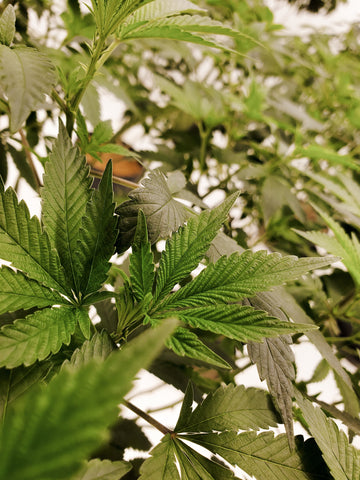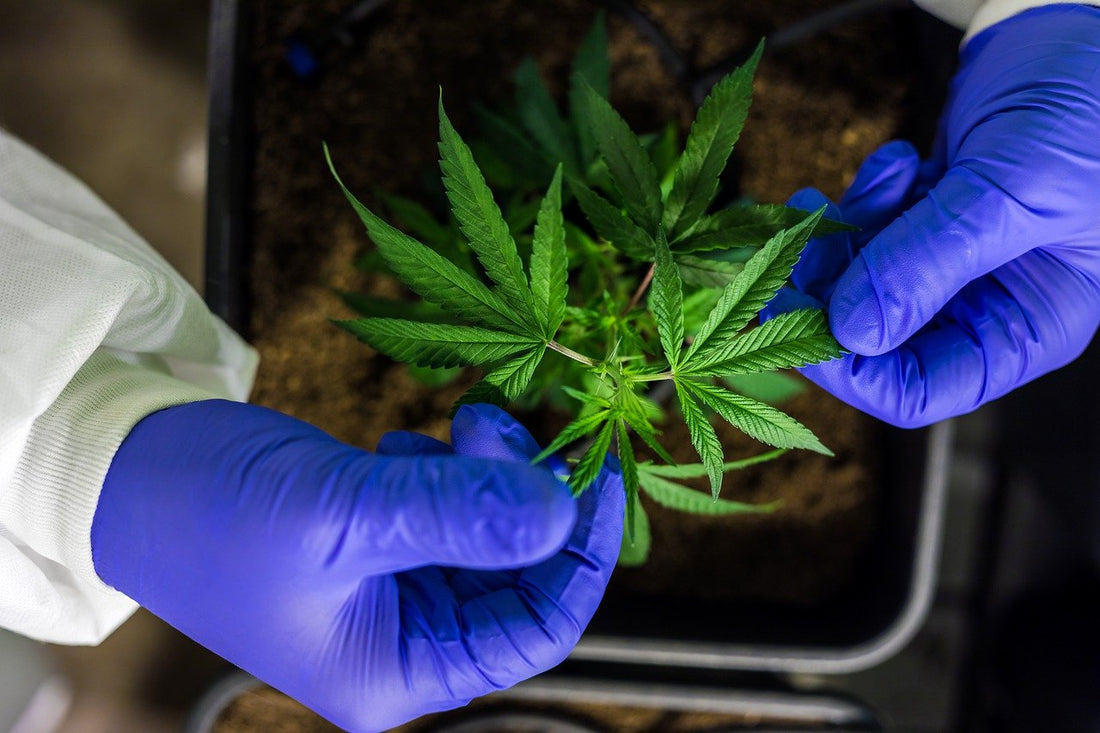Introduction
Cannabidiol (CBD) has surged in popularity as a natural option for managing pain, anxiety, inflammation, and more. But what makes CBD so special, and how does it interact with our bodies? To understand this, we need to explore the science behind CBD and its relationship with the endocannabinoid system (ECS). At Soothe Organic, we’re committed to providing high-quality CBD products, such as CBD topical creams for targeted relief and full-spectrum CBD tinctures for overall wellness, to support your health journey.
CBD is a non-psychoactive compound derived from cannabis plants, primarily hemp, which contains minimal THC (tetrahydrocannabinol), the compound responsible for the “high” associated with marijuana. Unlike THC, CBD offers potential therapeutic benefits without intoxication, making it appealing for those seeking natural remedies. Extracted from hemp, CBD is available in forms like oils, tinctures, softgels, and topicals, catering to various preferences and needs.
Key Takeaways
-
Non-Intoxicating: CBD interacts with the ECS to support bodily balance without causing a high.
-
ECS Components: The ECS includes endocannabinoids, CB1 and CB2 receptors, and enzymes that regulate bodily functions.
-
CBD Mechanisms: CBD modulates receptors, inhibits enzymes, and activates other pathways to potentially alleviate symptoms.
-
Therapeutic Potential: Research suggests benefits for pain, anxiety, epilepsy, skin conditions, and addiction, though more studies are needed.
-
FDA Approval: Epidiolex, a CBD-based drug, is approved for treating specific epilepsy conditions.
Understanding the Endocannabinoid System
The endocannabinoid system (ECS) is a complex cell-signaling network found throughout the human body, playing a vital role in maintaining homeostasis—the body’s ability to balance physiological processes like pain, mood, appetite, sleep, and immune function. Imagine the ECS as your body’s internal thermostat, constantly adjusting to keep everything in harmony. For instance, when stress spikes, the ECS releases endocannabinoids to signal a return to calm.
The ECS comprises three main components:
-
Endocannabinoids: Naturally occurring compounds, such as anandamide (AEA) and 2-arachidonoyl glycerol (2-AG), structurally similar to cannabis-derived cannabinoids.
-
Receptors: CB1 receptors, primarily in the brain, and CB2 receptors, mostly in the immune system and peripheral tissues, receive signals from endocannabinoids.
-
Enzymes: Fatty acid amide hydrolase (FAAH) and monoacylglycerol lipase (MAGL) break down AEA and 2-AG, respectively, after they’ve served their purpose.
When an imbalance occurs, such as inflammation or stress, the ECS activates to restore equilibrium, making it a key target for CBD’s potential benefits.

How CBD Interacts with the ECS
CBD’s interaction with the ECS is multifaceted, contributing to its therapeutic potential:
-
Modulation of CB1 and CB2 Receptors: Unlike THC, which binds directly to CB1 receptors and causes psychoactive effects, CBD acts as a modulator, enhancing or inhibiting other cannabinoids’ binding. This can reduce THC’s psychoactive impact, creating a balanced experience, as noted in studies on cannabis strains (Cannabinoids and Pain).
-
Inhibition of FAAH Enzyme: CBD inhibits FAAH, the enzyme that breaks down anandamide, often called the “bliss molecule” for its role in mood regulation. Higher anandamide levels may enhance feelings of well-being, supporting CBD’s potential for anxiety and depression management.
-
Activation of TRPV1 Receptors: CBD activates TRPV1 receptors, which mediate pain, inflammation, and temperature regulation. This interaction may reduce pain perception, particularly in conditions like neuropathy.
-
Other Receptors: CBD interacts with serotonin (5-HT1A) and GABA-A receptors, potentially contributing to its anxiolytic, antidepressant, and anticonvulsant effects, as explored in research (Cannabidiol for Anxiety).

Potential Therapeutic Applications of CBD
CBD’s interactions with the ECS and other systems have sparked research into its potential benefits across various conditions. While promising, the evidence is still evolving, and results vary.
Pain Management
Research suggests CBD may alleviate neuropathic, inflammatory, and cancer-related pain. A 2019 study found that CBD hemp extract reduced opioid use in chronic pain patients (CBD and Opioid Use). For those dealing with joint and muscle pain, Soothe Organic’s Broad-Spectrum CBD Sports Cream provides targeted relief, while Mint Organic Full-Spectrum CBD CBG Tincture supports overall pain management. However, some studies, like those reviewed by the International Association for the Study of Pain, indicate CBD may not outperform placebos for certain musculoskeletal pains, highlighting the need for further research (IASP on CBD).
Anxiety and Depression
CBD may reduce anxiety by modulating serotonin levels, with a 2015 review suggesting efficacy for generalized anxiety disorder, social anxiety disorder, and more (CBD for Anxiety). A 2024 study from CU Boulder further supports CBD’s ability to ease anxiety without THC’s side effects (CU Boulder Study). Soothe Organic’s CBD tinctures are popular for those seeking natural anxiety relief, offering a convenient way to incorporate CBD into daily routines.
Epilepsy
The FDA’s approval of Epidiolex for seizures associated with Lennox-Gastaut syndrome, Dravet syndrome, and tuberous sclerosis complex marks a milestone in CBD’s therapeutic recognition. Clinical trials showed significant seizure reduction, with some patients experiencing no seizures at higher doses (Epidiolex Results).
Cancer
Preliminary studies suggest CBD may inhibit cancer cell growth and promote apoptosis, but the evidence is not yet robust enough for clinical recommendations. Ongoing research continues to explore its potential in cancer treatment.
Skin Conditions
CBD’s anti-inflammatory properties may benefit skin conditions like acne, psoriasis, and eczema. A 2019 study found that CBD-enriched ointment improved skin parameters in patients with inflammatory skin diseases (CBD Ointment Study). Soothe Organic’s CBD topicals, such as their Broad-Spectrum CBD Salve, are designed to deliver CBD directly to the skin, potentially reducing inflammation and enhancing skin health.
Addiction Treatment
Early research indicates CBD may reduce cravings and withdrawal symptoms in substance use disorders, such as opioids and tobacco. Studies suggest it could lower cravings under specific conditions, but more clinical trials are needed to establish efficacy (CBD and Addiction).
Conclusion
The science behind CBD reveals a complex interplay with the ECS, offering potential benefits for pain, anxiety, epilepsy, skin conditions, and addiction. While research is promising, particularly with FDA-approved Epidiolex, more studies are needed to fully validate CBD’s efficacy and safety across these applications. At Soothe Organic, we prioritize quality, offering organic, third-party-tested products like CBD softgels and tinctures to support your wellness goals. Consult a healthcare professional before using CBD to ensure it’s right for you, and choose trusted brands to maximize potential benefits.
|
Condition |
Potential CBD Benefit |
Soothe Organic Product |
Supporting Evidence |
|---|---|---|---|
|
Pain |
May reduce neuropathic and inflammatory pain |
Broad-Spectrum CBD Sports Cream |
Capano et al., 2019 |
|
Anxiety |
May lower anxiety via serotonin modulation |
Mint Organic Full-Spectrum CBD CBG Tincture |
Blessing et al., 2015 |
|
Epilepsy |
Reduces seizures in specific syndromes |
Not applicable (Epidiolex) |
FDA Approval |
|
Skin Conditions |
May reduce inflammation in acne, psoriasis |
Broad-Spectrum CBD Salve |
Palmieri et al., 2019 |
|
Addiction |
May reduce cravings for substances |
Unflavored Organic Full-Spectrum Tincture |
Harvard Health, 2024 |
Key Citations
-
Cannabidiol as a Potential Treatment for Anxiety Disorders
-
Evaluation of CBD Hemp Extract on Opioid Use in Chronic Pain
-
FDA Approves Epidiolex for Rare Epilepsy Treatment
-
Therapeutic Effect of CBD Ointment in Skin Diseases
-
Cannabidiol (CBD): What We Know and Don’t Know
-
Cannabinoids and Pain: New Insights From Old Molecules
-
CBD Shown to Ease Anxiety Without THC Risks
-
IASP Review on Cannabinoids as Analgesics
usda organic, cbd best sleep gummies, best thcv gummies, focus gummies, 1000mg cbd, 750mg gummies, muscle rub, cbd cream 1000mg, healing salve, vegan gummies cbg tincture, is cbd legal in wyoming, best cbd casper, cbd gummies casper, thcv gummies casper, cbd tinctures wyoming, delta 9 gummies wyomin, best cbd softgels Wyoming




